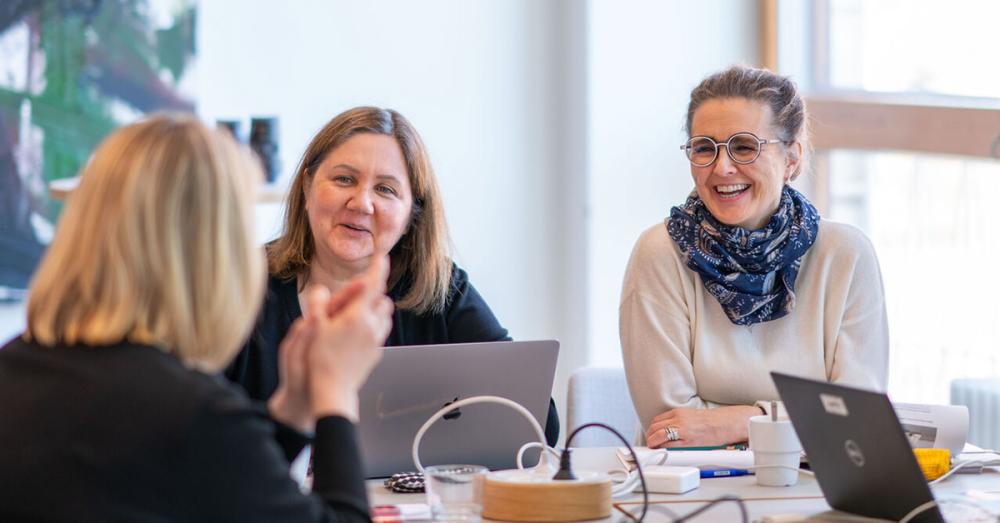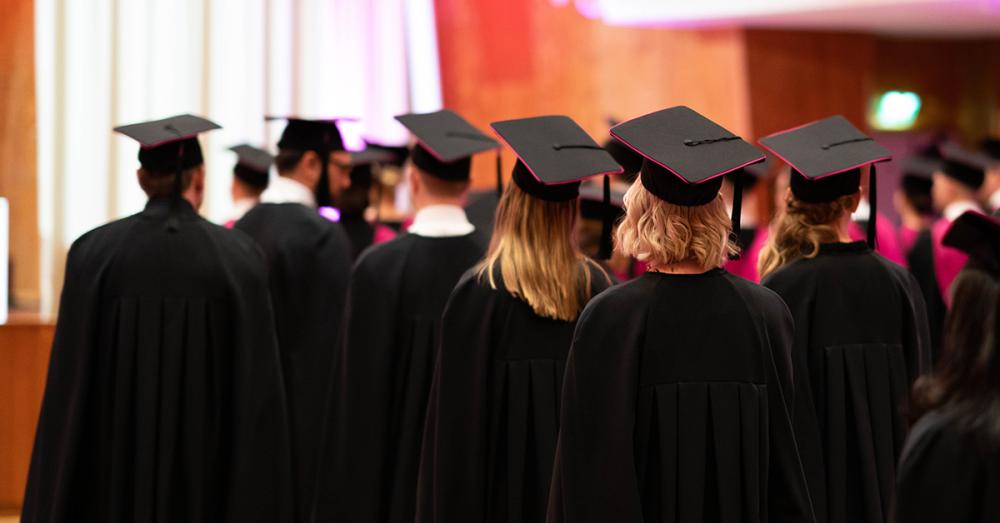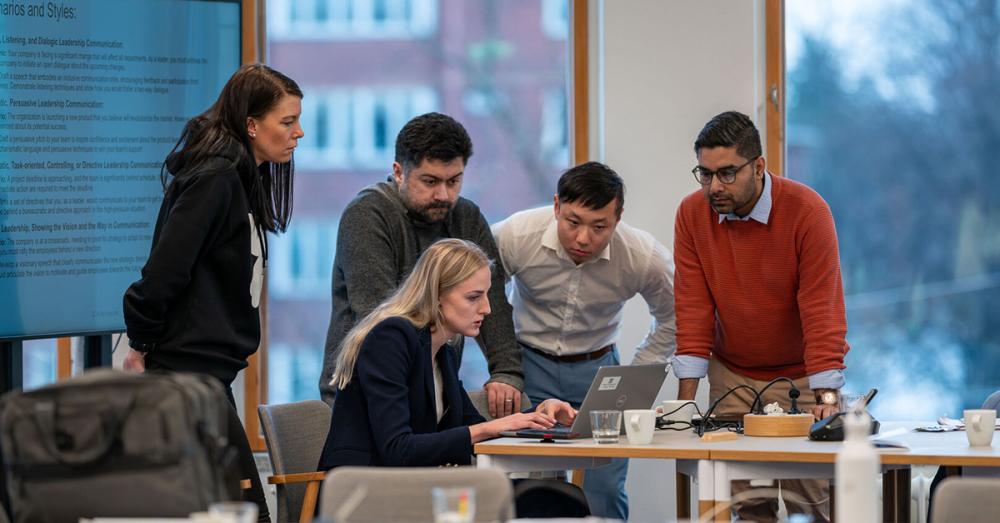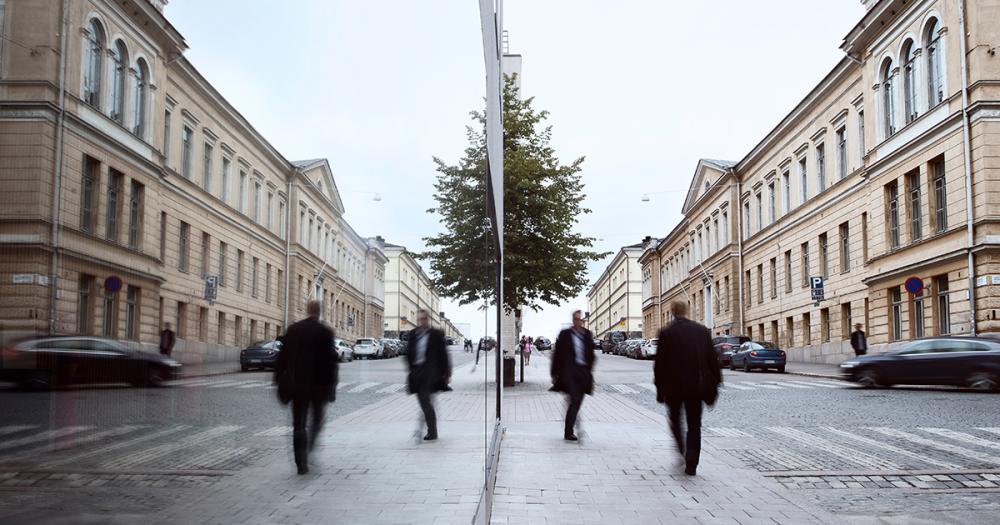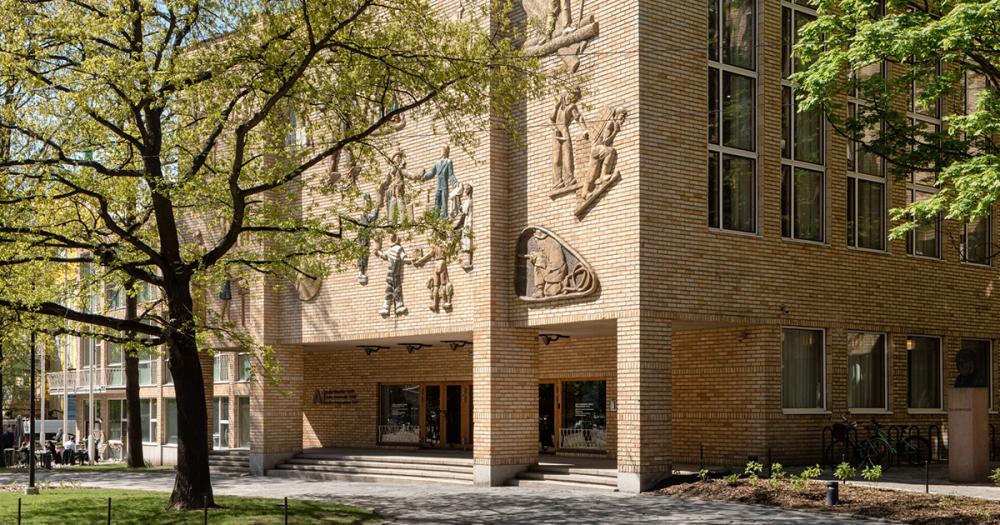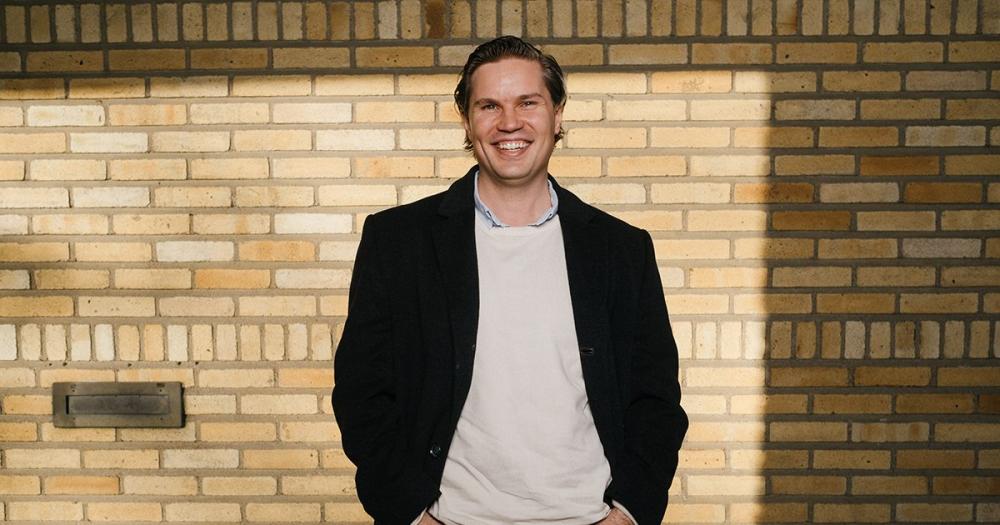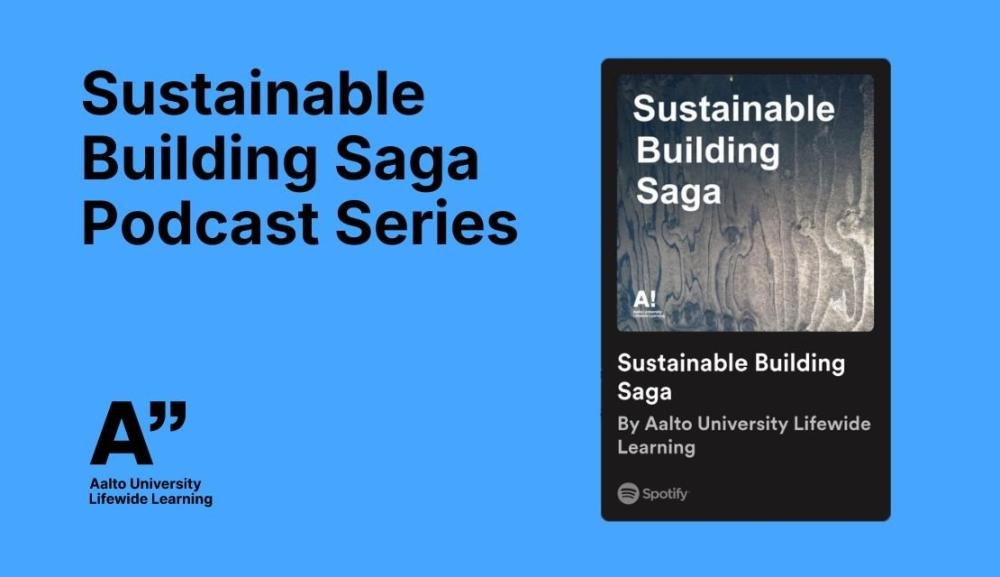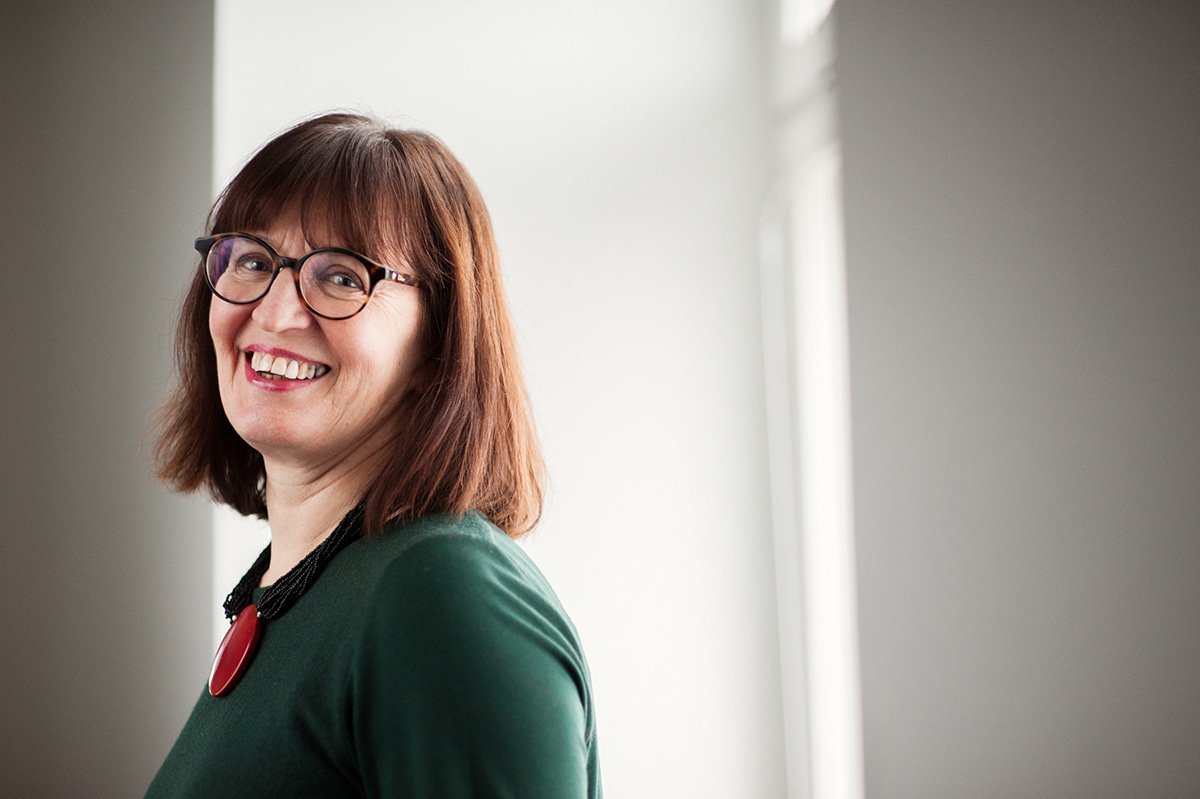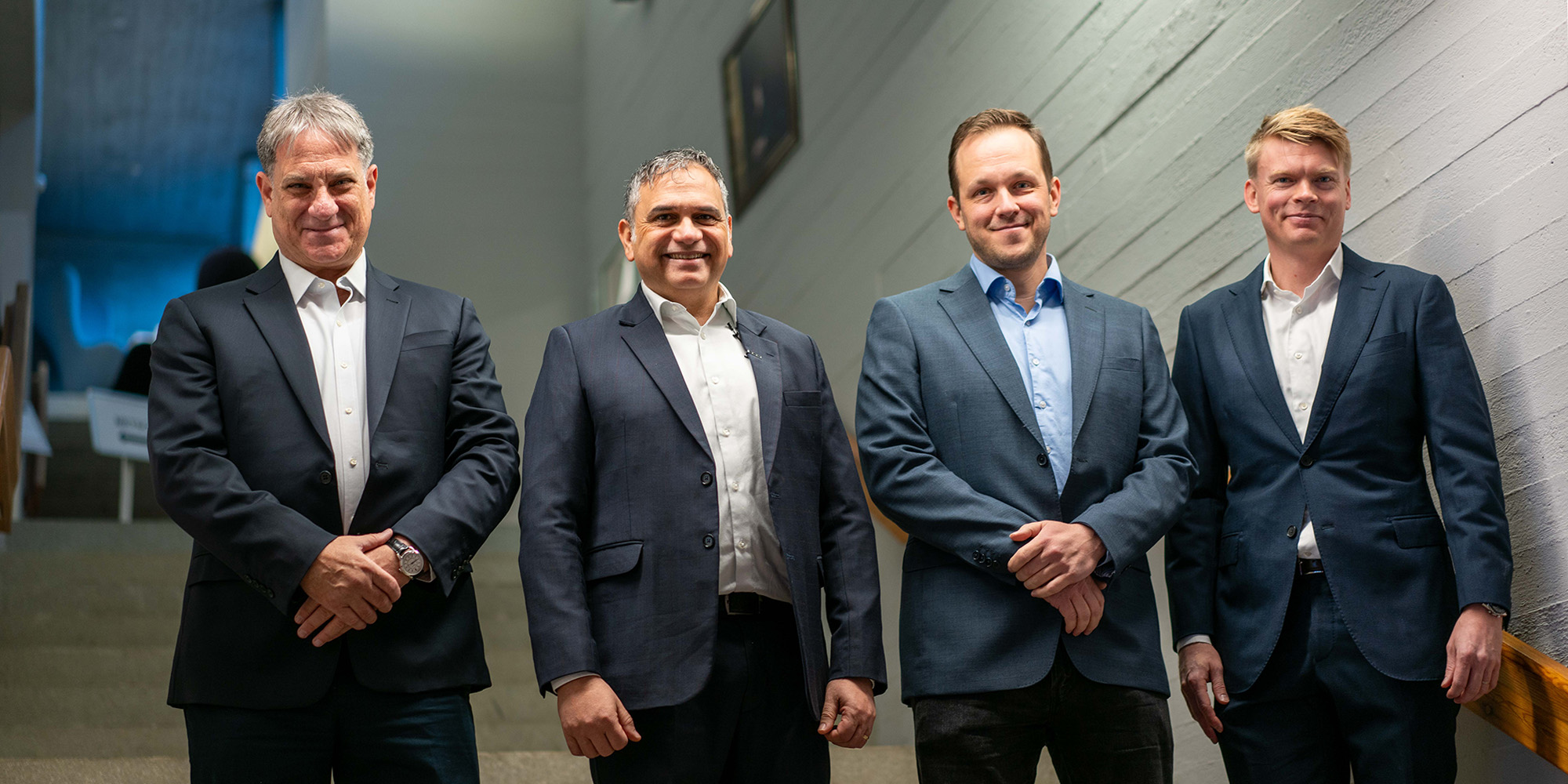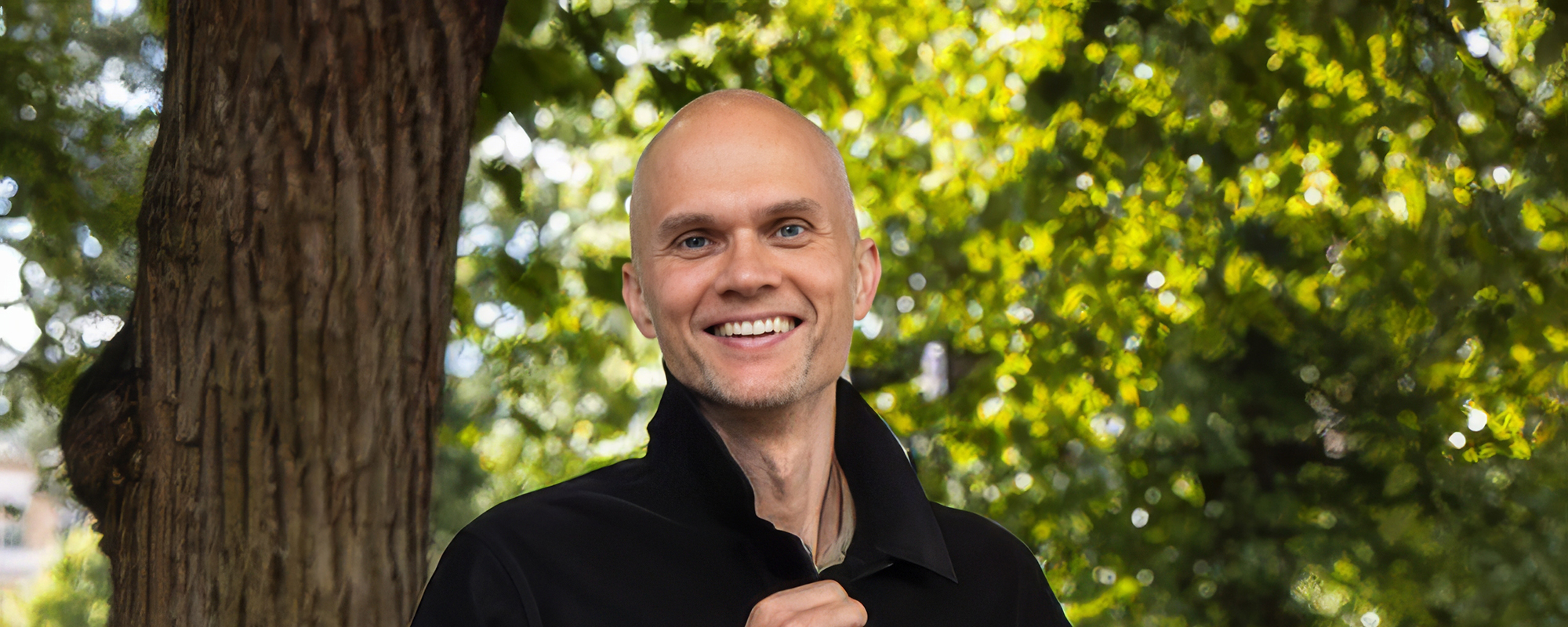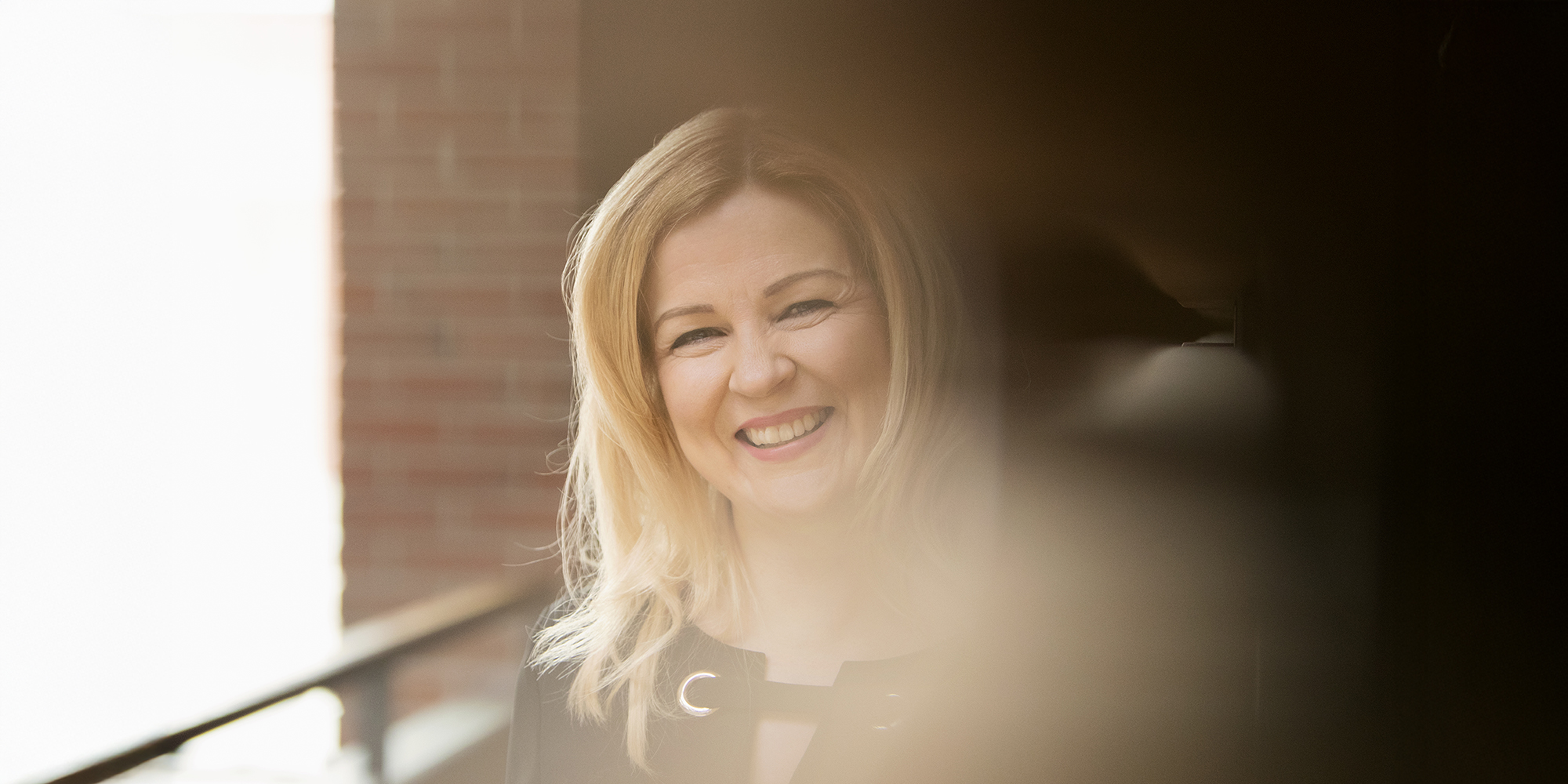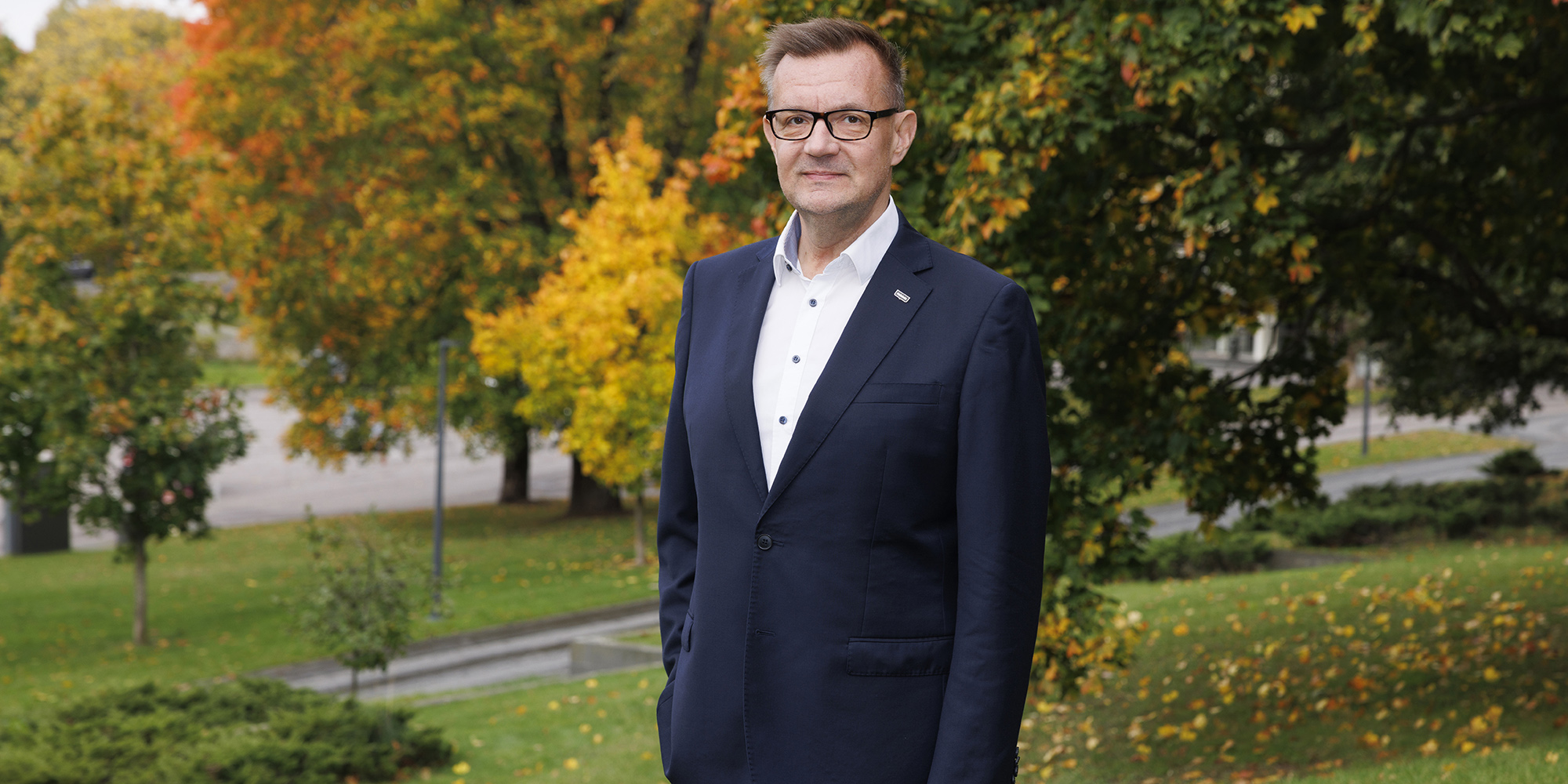Does a pandemic that lasts a few years or a war in Europe have a major effect on an organization that specializes in emergencies, crises, and helping the most vulnerable? Epidemics and war are, after all, more the rule than the exception in the world.
Kristiina Kumpula, Secretary General at the Finnish Red Cross, states that they do indeed have an effect. She has worked for the organization for decades, taking the helm in 2004.
Sure, recent disasters are not that different from the types of emergencies the NGO handles on a day-to-day basis anyway. It’s used to sudden, unexpected cries for humanitarian assistance.
“The machinery sets into motion as pre-agreed,” Kumpula describes.
It’s not an issue of being prepared for a nuclear war or natural disaster but knowing the next steps when something does happen."
Instead of preparing separately for each catastrophe that arises, the organization ensures established decision-making chains and partnership networks, fast communications, and a readiness to embark.
Everyone knows their roles when push comes to shove. ”It’s not an issue of being prepared for a nuclear war or natural disaster but knowing the next steps when something does happen.”
In the middle of emergencies and accidents, needs are endless, and resources are limited. The Red Cross needs to constantly keep in mind its key mission, strengths, and how it can best help those in need.
“We exist to help – for people to receive all the help and support we can give. It’s what steers our activities,” states Kumpula. She describes her organization as mission-oriented and coordination-centered.
”Crisis is a normal state for us. In times of emergency, our standard organization is in place.”
From the viewpoint of the Secretary General, deciding what not to do is important as well. The questions are always the same: Do we address the needs of those we want to help? Do we have the right competence for the issue at hand?
“If we don’t have the expertise, or the activities wouldn’t directly help the most vulnerable, we won’t go. Instead of trying to solve every problem in the world, we focus on our main task, consider the risks, and decide accordingly,” says Kumpula.
It’s easier said than done. The Secretary General also thinks on the lines that while operating in accordance with the organization’s key mission, it’s also vital to innovate and experiment.
“I want to be curious and brave enough to see afresh, rather than being content with the way things have always been done.”
"We saw how people took charge and came up with new ways to help."
COVID brought its own spin also to the Finnish Red Cross and its regular practices of assisting and supporting others. Its activities, too, took a huge digital leap. In the end, the most significant change brought on by the pandemic turned out to be the new winds in volunteering and organizational work.
The Finnish Red Cross is involved in a great deal more than just humanitarian relief work. It runs friendship activities, a blood donation service, a youth shelter, and a range of voluntary services. The pandemic brought new considerations: how to help risk groups remotely, how to protect volunteers who belong to a risk group, and how to operate during the pandemic on the whole.
”We saw how people took charge and came up with new ways to help,” says Kumpula, clearly impressed.
“Developing things jointly, freely, and at a fast pace brought some incredible visions for what volunteering and civic engagement can actually be."
The Finnish Red Cross received more volunteers, established local support groups, offered pharmacy help, and developed hybrid activities.
In Kumpula’s view, the COVID pandemic highlighted the resilience of Finnish society and the power of a society based on trust. Authorities and residents were close to each other, and when volunteers were needed for vaccinations, they could be found from NGOs. Now, volunteers are receiving Ukrainian refugees arriving via Tallinn at the port of Helsinki.
From a leadership perspective, people seem to be attached to meaning and doing rather than structures."
Kumpula also saw glimpses into the future of civic action. Sometimes volunteers are involved in a specific project; it’s not always about attending annual meetings or paying membership fees. The pandemic has offered the Finnish Red Cross a chance to transform, as it considers the role of spontaneous, free-form alliances alongside established activities.
”From a leadership perspective, people seem to be attached to meaning and doing rather than structures.”
According to Kumpula, people often channel fear and insecurity into action, thinking they have to at least do something. It’s, of course, a blessing for NGOs when people get busy packing boxes of diapers and hygiene products and helping those fleeing war. But internationally, the desire to help has been found to have its downsides: in the worst case, unwanted stuff and independent helpers get in the way of those requiring urgent assistance.
Kumpula shares some clear advice: consider whether you are helping just for the sake of it, or whether you are addressing what people genuinely need right now. In a large-scale emergency, aid needs to be coordinated so that logistics run smoothly and people receive exactly what they need.
”Helping people in need comes first. Sometimes it means having to say no to particular offers of help.”
Looking ahead brings hope and the right perspective
One of the features of the current crisis is longevity. Kumpula mentions that after a crisis has begun, you soon need to start preparing for what happens in one, two or three years. Where are we then?
It’s also important to remind people that the need is continuous. In an acute emergency, the first reaction is usually to get every donation to the disaster zone as quickly as possible. But aid organizations need to consider how long resources will last after the initial enthusiasm to donate has died down.
Activities have two frameworks: the acute crisis and long-term planning.
Kumpula’s most recent trip to Afghanistan was in February, while the war in Ukraine was already raging.
“Without turning our backs on others, we mustn’t forget about Afghanistan. 80 per cent of Afghanistan’s economy depends on foreign funding, which no longer exists.”
It’s important to have our people on the streets donning Red Cross vests and holding collection boxes in their hands. It allows people to approach them and say: this is awful, so awful."
Kumpula feels that looking ahead brings hope and the right perspective. In an emergency, both processes and situational awareness, as well as emotions and coping skills, are important.
”The role of psychosocial help is understood better today, whether in leadership, the coping skills of employees or volunteers, or for those in need. People are seen holistically.”
When the situation is at its worst, people need to be given a chance to say that the world is a cruel and unfair place. It’s one of the reasons we still have fundraisers on the streets despite the convenience of donating online.
”It’s important to have our people on the streets donning Red Cross vests and holding collection boxes in their hands. It allows people to approach them and say: This is awful, so awful.”
Emergencies highlight interdependencies
Recent catastrophes have highlighted trends and slogans that have been talked about before but may have remained theoretical notions until now. Kristiina Kumpula has confronted the following situations in her work at the Red Cross.
Interdependence.
”Global interdependence is a hot topic – suddenly we live in a world where choices, decisions, and their consequences are fully interdependent. It’s evident in the war in Ukraine, which will result in food shortages and food crises. We are currently thinking up ways to support the deepening famine in East Africa. The impact of increased food prices can be seen in Finland, too – in addition to helping in Ukraine, the Finnish Red Cross currently has 110 units distributing food in Finland.”
Local action, global thinking.
”I learned this motto when I was young, but more in theory than in practice at the time. I now think about local expertise as a resource, whether in a Kenyan slum or a small Finnish town. Local know-how makes a difference when tackling issues on a global scale.”
Disaster preparedness.
”Over the years, I’ve really come to see how interdependent we all are. Our financial and administrative staff ensure that logistics run smoothly. The aim is for basic operations to run as planned according to agreed procedures. At the start of a crisis, the first responder is usually a woman at the center who receives a call asking, for instance, for clothing for someone in need. She will give the same instructions as those involved in operations. The center receives the call, not the Secretary General. Each one of us has a key role, and people find real meaning in their work as they are part of the whole.”
Learning from disasters.
As horrendous as they are, disasters always come with lessons. They pinpoint in practice what works and where there’s room for improvement.
Kumpula describes the situation at the Red Cross as follows: ”Our work is a chain of major relief operations. There’s always a new situation around the corner calling for our help. Large-scale operations provide an opportunity to change and develop. The results of some of the development projects currently underway won’t necessarily be in time to help the victims of the war in Ukraine, but they will make us more prepared and can be used next time around. Because, unfortunately, the next major relief operation always comes.”
How is BANI (Brittle, Anxious, Non-Linear, Incomprehensible) demonstrated in your work?
”The last few years have been different. Impulses have been faster than before. The cycle of changes has been more rapid and the crises more surprising. It’s forced us to make quick decisions on how to allocate resources and what’s important.
An organization like the Red Cross needs to keep an eye out on the whole world. While we have a strong presence in Ukraine, we are also working, for instance, with the Afghan Red Crescent and preparing for the major drought in East Africa. We need to constantly check that we see the bigger picture and do the right thing in the situation at hand.”
This interview with Kristiina Kumpula is part of a long-form article published in Aalto Leaders' Insight magazine. Read the whole article

